Proscription
What is a "proscribed organisation"?
A “proscribed organisation” is an organisation or group that is illegal to join or show support for, because it has been identified as being concerned in terrorism.
The Home Secretary can choose to proscribe an organisation under the Terrorism Act 2000, if that organisation:
- commits or participates in acts of terrorism
- prepares for terrorism
- promotes or encourages terrorism (including the unlawful glorification of terrorism); or,
- is otherwise concerned in terrorism
Dozens of terrorist organisations are proscribed under the Terrorism Act 2000. The full list can be found on the Home Office website:
Proscribed terrorist groups or organisations – GOV.UK (www.gov.uk)
What are proscription offences?
Once an organisation is proscribed there are a number of criminal offences that are associated with membership or showing support for that organisation.
Proscription makes it a criminal offence to:
- belong to a proscribed organisation (Section 11)
- invite support for a proscribed organisation (Section 12(1))
- recklessly express support for a proscribed organisation (Section 12(1A))
- arrange a meeting in support of a proscribed organisation (Section 12(2))
- wear clothing or carry articles in public which arouse reasonable suspicion that an individual is a member or supporter of a proscribed organisation (Section 13) or
- publish an image of an article such as a flag or logo in the same circumstances (Section 13A).
These offences can be committed both in the real-world, and online.
The sections contained in brackets above refer to the relevant section of the Terrorism Act 2000.
What are the penalties for committing a proscription offence?
The law is clear and being unaware that you are committing an offence does not mean you won’t face the consequences.
Under sections 11 and 12 of the Terrorism Act 2000, the penalties for proscription offences are a maximum of 14 years in prison and/or a fine. The maximum penalty for a section 13 offence is six months in prison and/or a fine of up to £5,000.
How does proscription disrupt terrorism?
Proscription enables the police to arrest people who are connected to a range of terrorist groups.
Proscription can also support other enforcement or disruptive activity, including the use of immigration powers such as exclusion, prosecution for other offences, encouraging removal of on-line material, messaging and EU asset freezes. The resources of a proscribed organisation are terrorist property and are, therefore, liable to be seized.
Once a group is proscribed, Counter Terrorism Policing remain vigilant to potential membership or activity under other names or aliases.
Decision-making around which groups are proscribed is a matter for the government.
Do the offences relating to a proscribed organisation apply overseas?
Yes. The section 11 offence of membership of a proscribed organisation has had extra-territorial jurisdiction since 2006. From 12 April 2019, the section 12 and 13 offences of inviting or recklessly expressing support for a proscribed organisation, and the offences of displaying or publishing articles, also have extra-territorial jurisdiction for British nationals and UK residents. The offences do not prevent non-governmental organisations interacting with proscribed organisations overseas.
Someone I know is expressing extreme views and I need some advice - what should I do?
It can be difficult to know what to do when you’re worried about someone you love expressing extreme views. Getting support as soon as possible is crucial in stopping someone heading down the path to radicalisation. Visit Act Early for advice and support.

